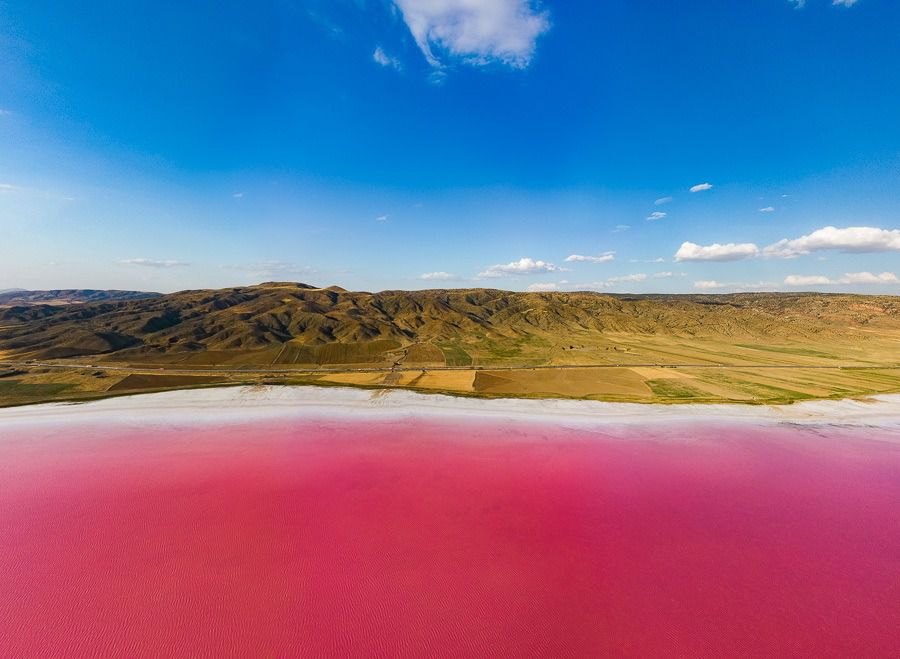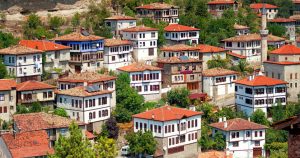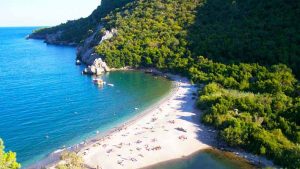TUZ LAKE
Tuz Golu in Turkish, is a saline lake occupying a huge area in the arid central plateau of Turkey, about 105 kilometers (65 miles) northeast of Konya, neighboring also Nigde and Ankara provinces. It’s the second largest lake of Turkey, after Lake Van, lying at an elevation of 905 meters (2,970 feet) as a tectonic lake. Despite it’s huge area (1500 square kilometers / 580 square miles) for most of the year is very shallow (between 0,5-1 meters), especially during dry summer months when the water evaporates in huge quantities leaving a tick crust of salt on the surface up to 30 centimeters. This salt is extracted, worked, refined and sold in the local market, thus making this the biggest industry for small towns’ economy in the area. It’s not only the biggest salt lake of Turkey but one of the biggest in the world as well. The density of the water is 1.225 gr/cm3, and salt percentage is 32.4%. The lake has no outlet, and only few surface streams feed it but they dry in the summer when the climate is hot. Rainfall in the surrounding area is as low as 250 milimeters (10 inches) per year. There are also many small lakes around the Tuz Gölü; Kulu Lake, Samsam Lake, Uyuz Lake, Kozanli Saz Lake, Boluk Lake, Tersakan Lake, Esmekaya Lake and Hirfanli Dam Lake.
Lately Salt Lake is in great danger because of industrial pollution and wrong usage of under and over ground waters. This is threatening the lake itself but also fauna and the flora of the area, which will definitely have a negative effect on the local inhabitants around the lake. Therefore WWF (World Wildlife Foundation) of Turkey came up with Salt Lake Pilot Project which is currently supporting the Authority for the Specially Protected Areas (ASPA) in their responsibility to conserve and rehabilitate the unique ecosystems of Tuz Lake area. Together with ASPA (Özel Çevre Koruma Kurumu in Turkish), the basis for an Integrated Conservation Management Plan for the south-western part of Tuz Lake will be developed. ASPA, the main Authority in Tuz Lake, is integrating their own study to the Tuz Lake Pilot Project in terms of specific activities, like hydrological modeling and stakeholders meetings, so as to achieve the common purpose; Tuz Lake Integrated Conservation Management Plan.




